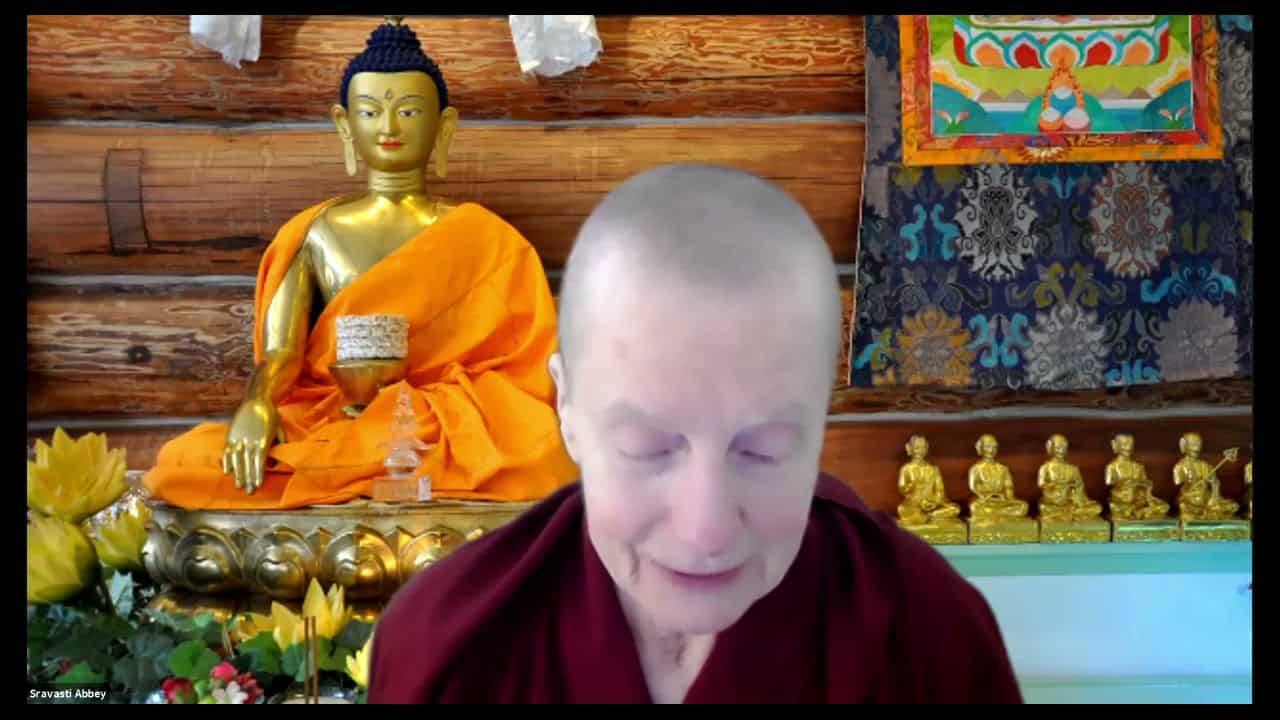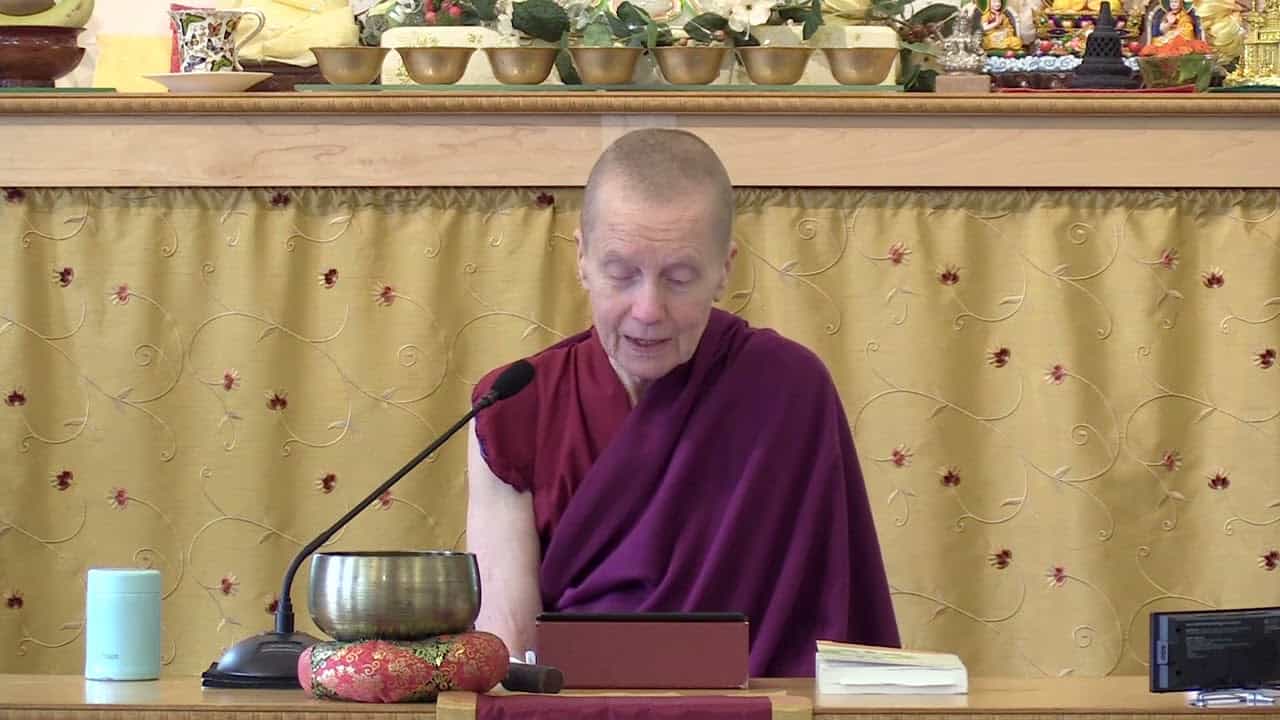The path of the initial level practitioner
83 The Foundation of Buddhist Practice
Part of an ongoing series of teachings (retreat and Friday) based on the book The Foundation of Buddhist Practice, second volume in “The Library of Wisdom and Compassion” series by His Holiness the Dalai Lama and Venerable Thubten Chodron.
- Ethical conduct for higher rebirth and liberation or full awakening
- Renunciation and wisdom realizing emptiness
- Bodhicitta and wisdom realizing emptiness
- Karma, dependent arising and emptiness
- Causal dependence, mutual dependence
- Dependence on term and concept, dependent designation
- How to consider conventional identities?
- Practice in common with initial level practitioner
The Foundation of Buddhist Practice 83: The Path of the Initial Level Practitioner (download)
Contemplation points
- Ven. Chodron spoke about mutual dependence, that cause and effect are related to each other. She encouraged us to sit and think about: All relationships we have are dependent on somebody else – a niece, for example, is dependent on an aunt or uncle, a sister or brother… . Also in regard to your career: it’s totally dependent on other causes and conditions – other people, social structure, etc. Where did the social structure come from? Is capitalism inherent or do we invent these systems? Are they dependent on our mind? Spend time, sit and reflect in this manner with personal examples from your life.
- His Holiness wrote: “Asaṅga says that someone who has fully dedicated his or her body, speech, and mind for the welfare of sentient beings continuously holds the thought to do all actions totally for the benefit of all sentient beings.”What keeps you from focusing on the benefit of all sentient beings on a day to day level? Follow your daily activities and your thought patterns. Where do they lead you? Just be aware. Write them down and determine actions that are geared towards the welfare of sentient beings.
Venerable Thubten Chodron
Venerable Chodron emphasizes the practical application of Buddha’s teachings in our daily lives and is especially skilled at explaining them in ways easily understood and practiced by Westerners. She is well known for her warm, humorous, and lucid teachings. She was ordained as a Buddhist nun in 1977 by Kyabje Ling Rinpoche in Dharamsala, India, and in 1986 she received bhikshuni (full) ordination in Taiwan. Read her full bio.


